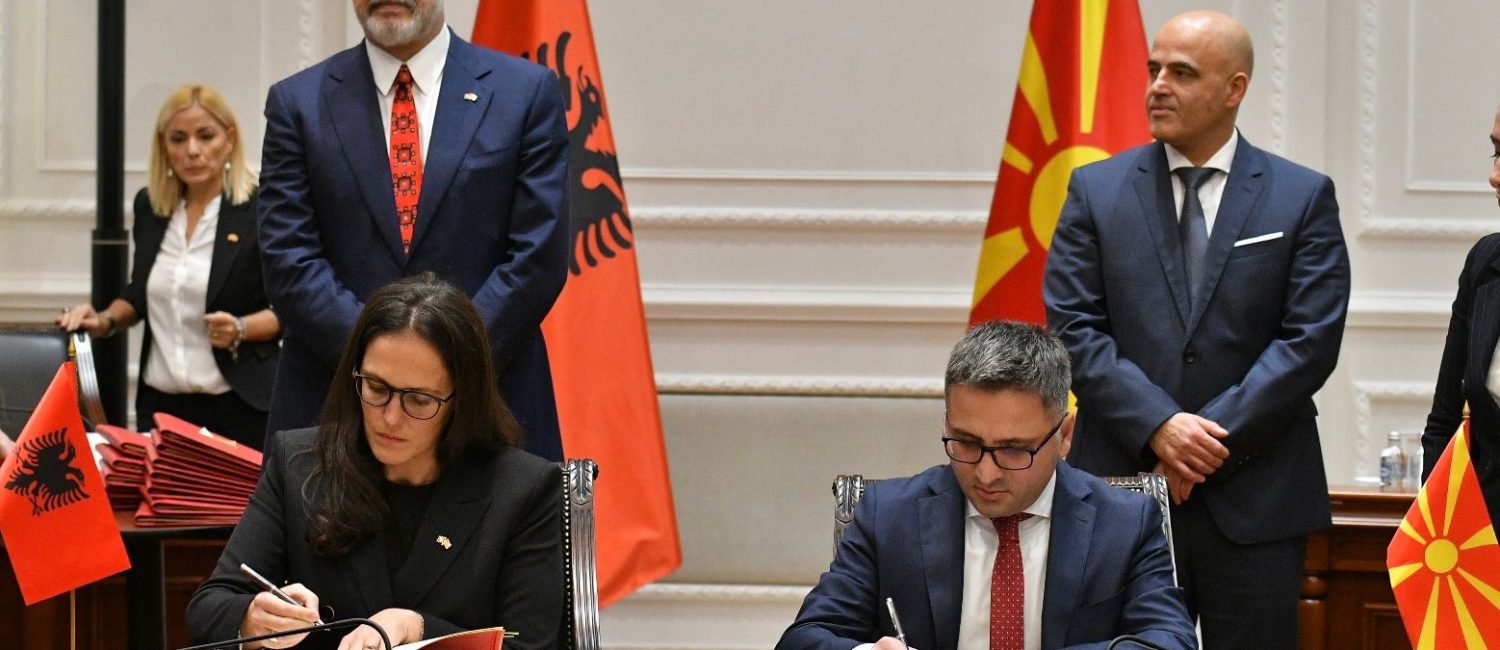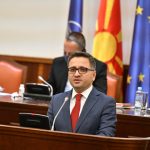15th November 2022, Skopje – Republic of North Macedonia and Republic of Albania are advancing the cooperation in the field of public finances and the EU accession process, as well as the economic cooperation by implementing the agreements on establishment of shared border crossing points at Kjafasan and mutual recognition of authorized economic operators, with the Minister of Finance, Fatmir Besimi, and the Minister of Finance and Economy of the Republic of Albania, Delina Ibrahimaj, having therefore signed three documents at the second inter-governmental session held in Skopje yesterday.

Minister of Finance, Fatmir Besimi, underlined that the Memorandum will provide for establishing an efficient and coordinated cooperation between the two Ministries in exchanging information in the field of public finances and implementing reforms, thus getting both countries closer to the EU standards and advancing on the path to EU membership.
“Cooperation between the two institutions, established with the Memorandum, will provide for the efforts of our countries aimed at promptly treading the path we have already started walking. Exchange of information and experience will speed up the implementation of reforms. Both the Ministry of Finance and the Government are committed to the EU agenda. Joint government session with the Republic of Albania, held in Skopje, is one of steps of such efforts and a step towards advancing the cooperation in general, and the economic cooperation in particular. Protocols we have signed within this joint session contribute to enhancing the bilateral trade, accelerating the flow of goods between the two countries”, Minister Besimi said.
Efficient and coordinated cooperation between the two Ministries will be stablished under the Memorandum. The Ministries will exchange information on harmonization of the national legislation with the EU acquis in the filed of public finance, public investment management, i.e. their planning, distribution and implementation of public infrastructure projects, improvement of the Budget planning process, as well as preventing the incurrence of new arrears, tax policies, eradicating informal economy and tax evasion, internal audit, as well as public financial management reform.
Mutual cooperation and enhancing the economic relations are crucial on that path, contributing also to accelerated economic growth of both countries. Signed Protocols on establishment of shared border crossing point at Kjafasan– Qafë – Thanë and mutual recognition of approvals for authorized economic operators speak in favour thereof.

Protocol between the Ministry of Finance – Customs Administration of the Republic of North Macedonia and the Ministry of Finance and Economy – General Directorate of Customs of the Republic of Albania is one of steps as regards the implementation of the Agreement between the Government of the Republic of North Macedonia and the Council of Ministers of the Republic of Albania on the establishment of shared border crossing points between Republic of Albania and Republic of North at Kjafasan – Qafë – Thanë border crossing point. Hence, concept of joint border control will be applied between the two countries, which will contribute to shortening the waiting time and facilitating the movement of passengers and goods between them.
To the end of facilitating the trade between the countries, Protocol between the Ministry of Finance – Customs Administration of the Republic of North Macedonia and the Ministry of Finance and Economy – General Directorate of Customs of the Republic of Albania was signed for implementing the Agreement on Mutual Recognition of Approvals for Authorized Economic Operator for Security and Safety between the Government of North Macedonia and the Council of Minister of Republic of Albania.
This Protocol will provide for enhancing the security in trading, eliminating the barriers to mutual trading, establishing closer relations, all contributing to stronger economic development and alignment with the EU practices. Simple and predictable procedures in customs, faster customs clearance of goods, greater security and communication among the partners, as well as enhanced relations with customs and other state bodies will be also enabled.
















